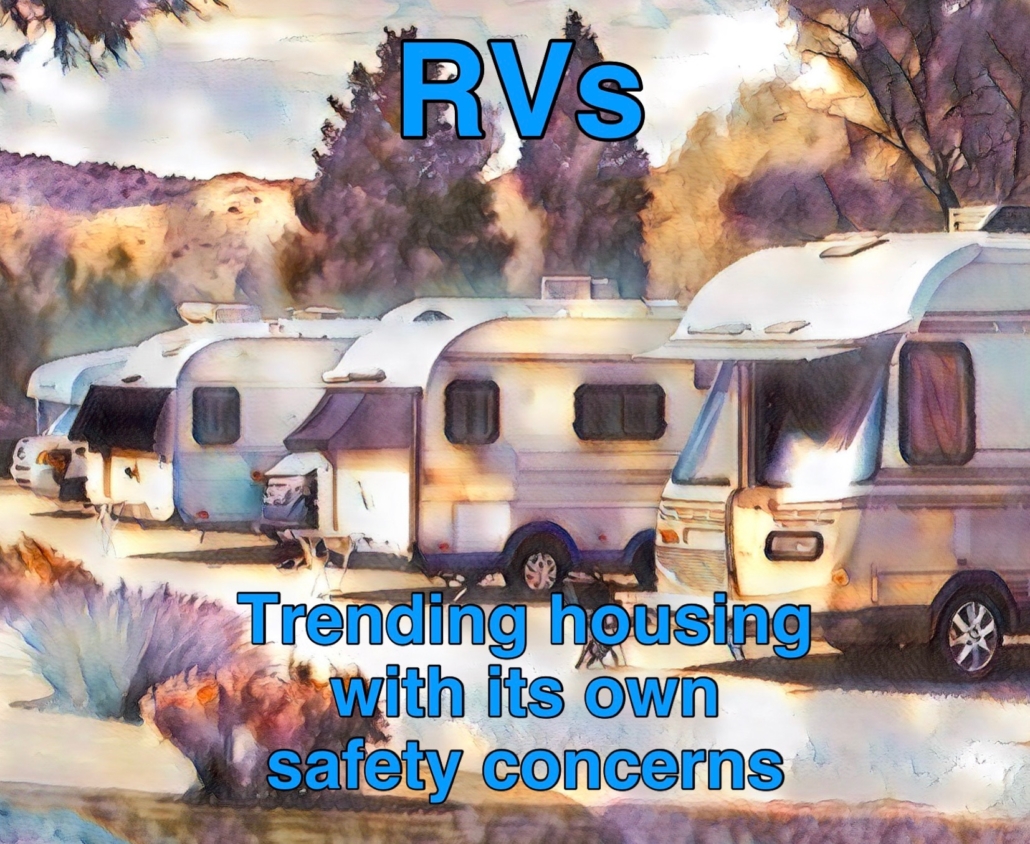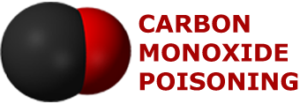Propane Leaks a Leading Part of RV Safety Concerns
The growth of a nomadic lifestyle is creating has increased RV Safety Concerns including the risk of propane leaks and explosions. Special detectors are required.
By Rebecca Martin
A few years ago, some friends of mine gave up jobs and their dream home in the suburbs to pursue a nomadic lifestyle. The subsequent tales of their adventures have encapsulated a trend in America towards spending more time on the road and less time in one place. But giving up a fixed address does come with RV safety concerns. All of us have probably known someone who spent some time each year following the warm weather and avoiding northern winters. In 2018, the Washington Post published an article stating that one million Americans were living full time in RVs, for various reasons. https://www.washingtonpost.com/business/2018/11/12/million-americans-live-rvs-meet-modern-nomads/

RV Safety Concerns including the risk of propane leaks and explosions are growing as more people choose to give up a permanent address. It is important to know that special detectors are required to warn of propane leaks.
The numbers of American families owning RVs has accounted for the biggest increase in RV sales, with 10.5 million households owning at least one RV. The demographics of new owners has changed as well.
“Half of new sales are going to Americans under 45, and purchases by people of color are rising”
Whether RVs are used for weekend getaways, or permanent housing due to financial concerns or a desire for a minimalist lifestyle, it is a trend that is on the upswing. Fueled by economic factors such as the largest historical increases in apartment rents, soaring home prices and insurance premium increases impacted by increasing natural disasters and costs of replacement materials, it is a trend that will continue in the foreseeable future. https://www.rvtravel.com/reasons-to-live-in-an-rv-1042/
In many states it is becoming more and more difficult to secure insurance for homes built pre-1960s, a housing market which catered to the “fixer-uppers” willing to put in sweat equity to obtain affordable housing. This has been exacerbated by a whole new generation of house flippers who buy low and sell high, making it more difficult for those with a modest income to afford a home, regardless of their enthusiasm.
Another factor is workplace flexibility with more young people requiring only an internet connection for their jobs at the same time as jobs have migrated to urban environments and higher housing costs.
This trend toward RV living has inspired a whole new hospitality industry that has sparked the interest of investors: RV Resorts and Campgrounds. Investors saw an increase in the demand for camping sites during the pandemic. When young people entered the outdoor hospitality sector due to covid work from home protocols, investors took a serious look. As a result, new investors have entered the market which has been dominated for decades by the two largest outdoor hospitality investors: Equity Lifestyle Properties Inc. (ELS) and Sun Communities. https://www.wealthmanagement.com/lodging-hotel/why-real-estate-investors-are-paying-more-attention-rv-parks-and-campgrounds
Although RV ownership and use is very reliant on fuel prices and inflation, it is still a resilient industry as rental fees can be adjusted daily and it is still one of the most economical ways for Americans to enjoy a family outings.
When my nomad friends reported that a camper had exploded quite close to them this week, I immediately wanted to look at RV safety. The fatal explosion occurred when a portable propane heater exploded and set off the propane-fueled heat and stove lines. The number of similar incidents in the news over the years is staggering. And this is one danger that a CO detector is not able to provide a warning of. Many people assume that a CO detector will be able to detect a propane gas leak, but CO detectors only detect carbon monoxide and not raw fuel or fumes. The only device capable of detecting methane or propane is a combination explosive gas and carbon monoxide alarm. Anywhere there is propane being used, a carbon monoxide detector and a propane detector should be used.
Propane detectors should be paced anywhere there is a propane appliance such as a water heater, furnace, stove or fireplace.
“You should also have propane detectors in rooms where you use space heaters and outside all sleeping areas.” https://www.parkergas.com/2020/10/12/propane-detectors-save-lives/
Propane, unlike carbon monoxide, is heavier than air so it is recommended that propane detectors be placed below the level of where a sleeping person’s head might rest.
People also assume that the only way to set off a propane explosion is with an open flame but a spark caused by flipping a light switch, arming a security alarm or merely closing a door are sufficient to cause an explosion.
Unlike carbon monoxide, propane has a distinct odor which has been added during production. It is described as smelling like rotten eggs or sulfur.
“But, sometimes, you may not smell propane. You may have a cold or allergies, or another medical condition that affects your sense of smell. Older people may have a less sensitive sense of smell. Medications, alcohol, smoking tobacco, or drugs can also reduce your sense of smell. And, on very rare occasions, propane can lose its odor because there is water or rust inside the propane tank.” https://www.parkergas.com/2020/10/12/propane-detectors-save-lives/
If you do smell propane, leave the area immediately and call for help. Propane professionals and first responders should be the only people allowed back onto the site. And all equipment should be inspected for leaks or faults before re-entering the premises. The Consumer Product Safety Commission estimates that there are approximately 600 propane tank explosions every year. There are an average of 155 injuries and 25 deaths due to propane fires annually. While statistically, propane is considered one of the safest fuels, there are precautions that should be taken.
Propane systems should never be allowed to run on empty because air and moisture can enter the system. Professionals should be called to install and replace valves, pipes and connectors, refill tanks, and light pilot lights. Vents and valves should be checked by professionals, especially in wintertime to guard against carbon monoxide. Propane tanks should never be stored indoors as leaks will pool underneath tanks because propane is heavier than air. Tanks should be disconnected from portable equipment when not in use and at the source for larger tanks.
There are propane heaters designed for indoor use. Never use a propane heater not specifically designed for indoor use indoors. Those designed for outdoor use produce more carbon monoxide and are meant to be used in wide open spaces with plenty of ventilation and air circulation. Indoor propane heaters produce less carbon monoxide but also require adequate ventilation and air circulation. It is an absolute necessity that a carbon monoxide detector be used in conjunction with any indoor propane heater.
“RVers are at an exceptionally high risk because of their small living space and their multitude of propane-powered appliances. Carbon monoxide poisoning from propane is a real danger.” https://rvlife.com/carbon-monoxide-poisoning-in-rv/
Propane is one of the primary fuel sources used in RVs. When in good working order it burns cleanly and produces carbon dioxide and water vapors in small quantities. But if it begins to leak and there is no spark to burn it off, propane can produce dangerous levels of carbon monoxide. The danger increases if there is little ventilation or air circulation. A properly burning pilot light is a clear bright blue color. If the flame is red or yellow, that is an indication that the fuel is not burning cleanly. The presence of smoke or a smell is also an indicator that fuel is not being cleanly combusted.
We can see that propane has its own risks which are best addressed by proper use, maintenance and most importantly in conjunction with both carbon monoxide detectors and propane alarms.
As my friend pointed out, most RV parks today have electric hookups which can support electric space heaters if additional heat is needed. But care should be taken that any space heater have an automatic shut off should the space heater get knocked over because any fire in an RV has the potential to cause a catastrophic explosion.
Another safeguard is to use vents and windows to create adequate ventilation and air circulation because an RV, by definition is a small, enclosed space and more at risk for carbon monoxide exposure.
RVers recommend taking propane outside rather than inside at every opportunity.
And remember, RV parks are not the only places where propane can become a problem. Explosions have occurred parked in driveways and on busy streets. According to the United States Fire Administration, one of the biggest causes has been refrigerators. Mass product recalls resulted of the Norcold fridge as a result.
“From 2016 to 2018, an estimated 3,700 RV fires were reported in the United States annually. “ https://www.circlingthenews.com/why-rvs-explode-there-are-several-reasons/
About 35% were the result of faulty wiring.
Whether you are taking to the road in the family RV, storing your RV for the season or setting out on the adventure of a lifetime, keep in mind that RVs require the same care, knowledge and maintenance that other housing requires. With the proper preparation and the use of carbon monoxide and explosive gas detectors in conjunction, your travels will be safer.

Even the most seasoned RVers can face unexpected challenges. It’s better to have safety precautions in place just in case. GasStop is a revolutionary and essential lifesaving propane safety device that completely (100%) and automatically shuts-off the supply of propane gas in the event of a major leak or regulator failure. GasStop can be used as a minor leak tester aswell! More info. http://www.gasstopusa.com